Insights and Advice for 2020-2021 Course Selections
Teachers give more details about new courses, and upperclassmen advise students to challenge themselves but keep a healthy mindset about classes and grades.
April 25, 2020
This weekend, students will be making final decisions about their course selections for the 2020-2021 school year. The Sentinel staff spoke with teachers of new courses as well as upperclassmen to give greater insight into the SLS curriculum and help students navigate the intimidating selection process.
NEW COURSES
St. Luke’s has added five new semester-long courses for the 2020-2021 school year. These classes range from Sports Journalism to Advanced Constitutional Law, demonstrating the plethora of options at students’ fingertips.
Next year, 9th grade history teacher Mr. Powell will introduce African American History, a first-semester course modeled upon graduate-level seminars.
”This is a very stimulating class for those who want to know more about the history of African Americans and the importance of social justice research,” Powell shared. “Students will study topics from ancient west Africa to the evolution of hip hop in America.”
Students will conduct social justice research in the SLS community and New Canaan, giving juniors and seniors the opportunity to fully immerse themselves in their curriculum. In Powell’s words, the course is sure to be “a very fun, emotional, eye opening class.”
This history elective will be open to all upperclassmen.
Dean of Students Mr. Ward will bring his experience as a women’s basketball writer to Sports Journalism, another first-semester elective open to sophomores, juniors, and seniors.
Ward’s students will take a hands-on approach to the coursework and learn the tips and tricks of sports writing.
“Students will learn how to write pitches for story ideas, the difference between writing a journalistic article and an essay, as well as how to conduct interviews, ask tough questions, and the importance of establishing relationships with players, coaches, communications departments, sources, ’the media,’ social media, [and more],” Ward explained.
The course will be an opportunity to have fun and experiment with writing, Ward continued, because “students will have a lot of freedom to investigate events and topics that they enjoy and are interested in.”
This course will be open to grades 10-12, and will be qualified as an elective course; it does not fulfill the English graduation requirement, so students are invited to take the course in addition to their core classes.
In the designLab, Mr. Mitchell and Mr. Brusko will combine Foundations of Computer Science and Foundations of Engineering into a one-semester elective, allowing students more flexibility in scheduling. The course will both prepare students for Advanced Computer Science courses and fulfill part of the STEM Scholars requirements; it will be taught in both the first and second semesters.
Given that designLab Foundations is now co-taught, Mr. Mitchell hopes the course will allow him and Mr. Brusko “to better demonstrate how engineering and computer science are connected.”
Moving beyond the foundational course, Mitchell and Brusko have created Advanced Computer Science I — with Advanced Computer Science II launching in the 2021-2022 school year. Brusko shares that the advanced course will introduce students to the coding language C++ rather than Java, a change which will better prepare students for computer science study in college.
Similarly, the Fine Arts Department will embrace SLS’s decision to move beyond AP classes by introducing Advanced Art History electives in fall 2020. In the first semester, Mr. Lynch will teach Advanced Art History: Art & Architecture of the Renaissance, with Advanced Art History: Impressionism & Beyond in the second semester.
“With the school making the gradual shift from AP courses to Advanced, we thought it was time to phase out the AP Art History course,” Lynch shared. “While it was a terrific course, the curriculum was a mile wide and an inch thick. These new electives will allow students to dig deeper into the subject matter so it will be more meaningful to them, and they will have a fuller understanding of the material.”
According to Mr. Lynch, students in Advanced Art History electives will use an interdisciplinary approach to explore the “cultural relevance of the material.”
“These are college level art history courses,” Lynch explained. “Students will look at lots of slide presentations, do some reading, writing, researching and discussing the art, architecture and culture of each period.”
Advanced Art History electives will be challenging, so they are open to juniors and seniors. However, highly motivated sophomores may request the course as well. The course will fulfill the St. Luke’s fine arts graduation requirement.
Finally, Mr. Vehslage will teach two semester-long advanced history courses next year, both of which will prepare seniors well to study law or political science in college.
Advanced Constitutional Law will explore both the text and implications of the Constitution. Students will discuss controversial current issues like the right to privacy and the right to bear arms through the lens of constitutional studies.
In the second semester, Advanced Legal Studies will help seniors build a deep understanding of the American legal system. Vehslage will use case studies, simulations, and readings to, according to the course description, “evaluate the moral and policy justifications for laws and processes at the heart of American life.”
ADVICE FROM UPPERCLASSMEN
At times, the course selection process seems intimidating and overwhelming, but one of the best ways to navigate the process is asking for advice from veteran upperclassmen. Here is the Sentinel staff’s question and answer session, edited for clarity, with Bella Martino ‘21 (BM) and Ally Riley ‘20 (AR):
What is your advice on choosing classes and balancing coursework?
BM: If you feel able to, I would advise to take all of the honors classes your teachers recommend you for. They are a fantastic opportunity to push yourself, and teachers would not recommend you for a class you were unfit for. However, in the interest of balancing your workload, I would only take AP classes in subjects you have a strong interest in. Since these are advanced classes, being able to actually engage with the material helps a lot when facing the more challenging curriculum. Finally, I would say to take one class each semester purely for fun, such as an elective you are interested in or an art or music class.
AR: Every class is challenging in its own way, and I think you have to choose a class that’s right for you. You know yourself best for sure. Don’t compare yourself to other people; you know what class is right for you. Talk to your teacher, talk to your parents, talk to students who are older than you and see what they think about the class. That’s really helpful . . . You should not be afraid to take a step back and to know when enough is enough. I think everyone is so focused on building their resume, trying to get into the best college they can possibly get into, and I think that’s important, but people completely overwork themselves and take on more than they can handle. Sign up for all the classes you want to take and that interest you, but don’t be afraid to drop one if it really isn’t working for you. It will really help you in the long run.
What’s the biggest difference between standard classes, honors classes, and AP classes?
BM: I have found that standard, honors, and AP differ mostly in course load and level of understanding of the curriculum expected. Generally, I have found that honors-level classes have a greater level of detail in the material covered and also tend to move at a faster pace than standard. AP classes typically have an even more extreme pace and level of detail and often also have a more rigorous and time-consuming course load.
AR: I think there is a huge difference. During my freshman and sophomore year, I took all honors and all AP’s junior and senior year except for math. I’m in regular calculus now and was in regular pre-calculus the last year…. The atmosphere is totally different. In AP or advanced classes, it is very intense, very focused and a little bit more competitive; everyone is really driven and the class stays on task. There are a lot more expectations on independent work, harsher graders, heavier workloads and overall a bigger time commitment. The expectations of you as a student are a lot higher.
Have you ever gone a semester or year without a free? If so, what was it like and would you recommend it?
BM: I have not gone a semester without a free. Personally, I would advise against having a full schedule. I have found that time during the day to get started on homework, make up a test, or finish work from the night before has been extremely helpful and allowed me to perform better academically.
AR: Freshman and sophomore year I had two frees, and I loved my frees. I highly recommend having frees because they really gave me a chance to meet with my teachers, get ahead on work, study, and have some ”me time” during the day. I really valued having two frees. Junior and senior year it wasn’t possible anymore with the schedule shift and one less period in the day and there were also so many classes I wanted to take.
What are the coolest electives you’ve taken?
BM: Two electives that I took this year, Anatomy and Physiology and Ethics of Global Citizenship, were probably the most fascinating and engaging classes that I have taken at St. Luke’s. I think electives offer a great opportunity to start taking classes in more specific areas of academics that you are particularly interested in. For me, this was medicine and anthropology, and it was quite exciting to be able to take these classes and learn more about subjects I want to study in college.
AR: I really really love Genetics and Neuroscience. They are the two electives I am in right now and are brand new this year . . . They are really interesting, niche subjects that I feel a lot of other high school students don’t get the opportunity to learn about. You learn about mutation, diseases and do a lot of independent projects. If they still offer them your senior year, take them! Take them both!
NOTES AND LOGISTICS
A few courses will change their names for the 2020-2021 school year. Some classes will change from AP to Advanced, and instead of I, II, III, and IV, fine arts classes will be characterized as Intermediate and Expert. Students should refer to the curriculum guide and Mr. Yavenditti’s instructional Google Drive folder for more details.
An important thing to consider when picking courses are the St. Luke’s graduation requirements. This information can be found in the 2020-2021 curriculum guide, which is available on the Resources page of your SLS portal. This resource can also be used for more information about becoming a Classical, Global, or STEM Scholar and for more specific information about certain classes. Course requests are due by 8am on Monday, April 27, but changes can be made through May. Upper School English and history electives will be conducted via lottery in early May.



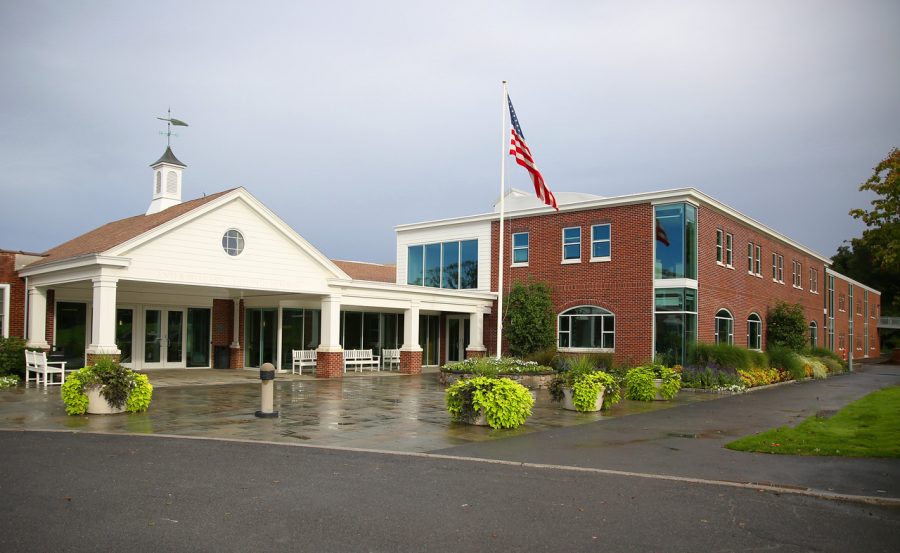
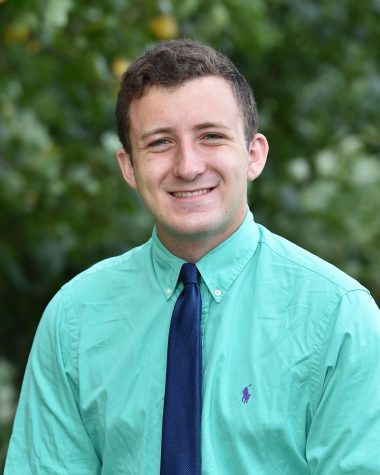
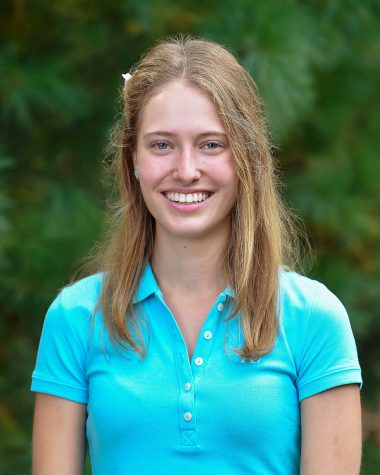
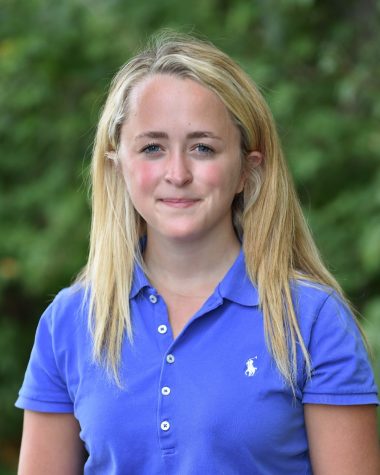
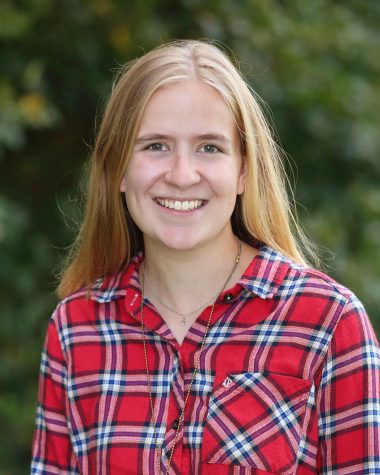
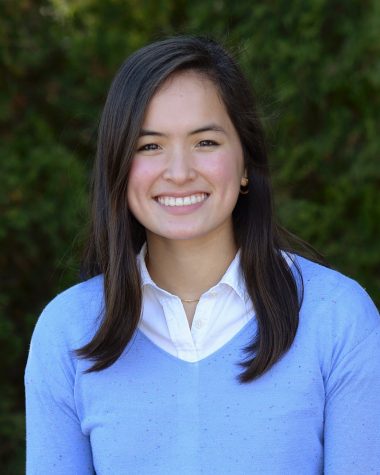
Cessa • Apr 25, 2020 at 4:00 pm
Even though I helped write, I learned so much from reading this article!